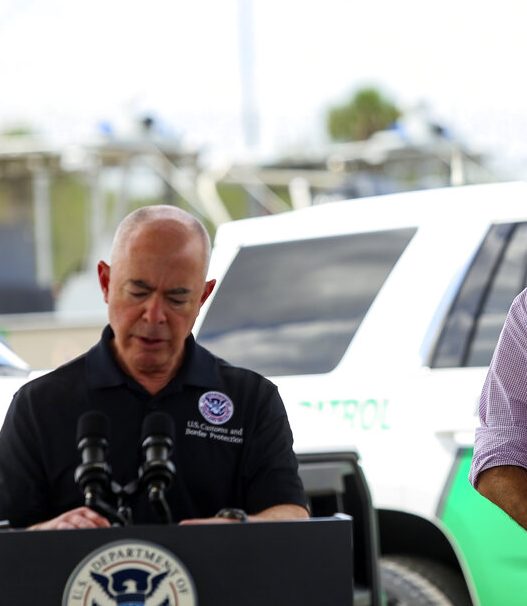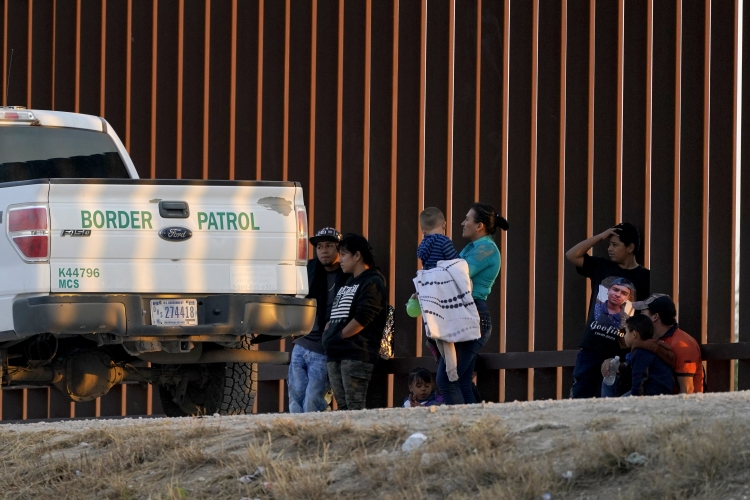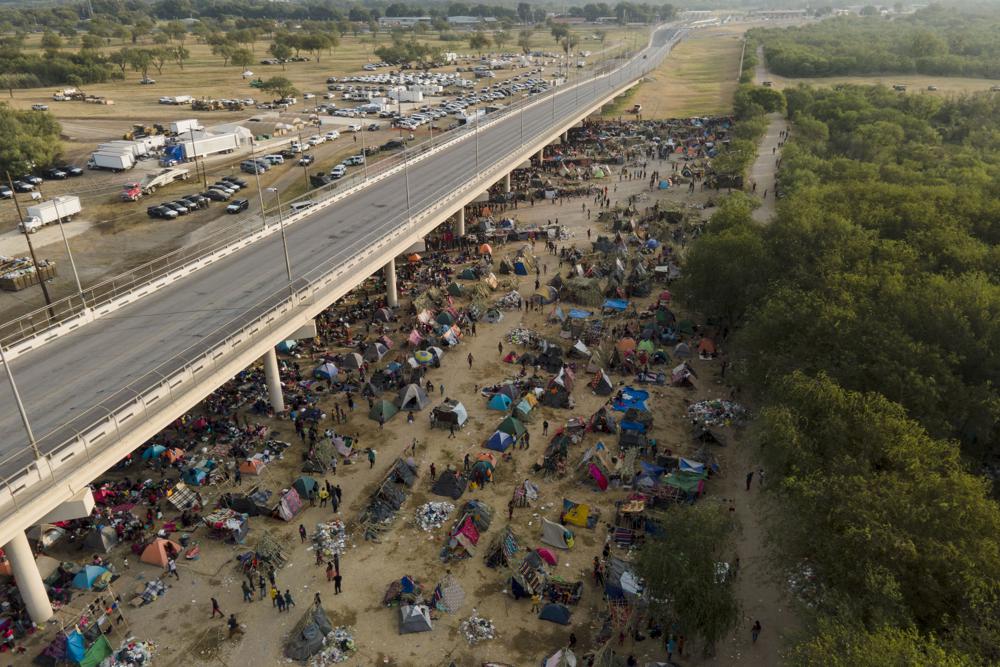Homeland Security Chief Alejandro Mayorkas Tells Fox News 12,000 Haitian Migrants Released Into US
www.google.com
When Evens Delva waded across the Rio Grande with his wife and two daughters, he had dreams of starting a new life in Florida. But less than a week later, he and his family stepped on to the tarmac in Port-au-Prince, the sweltering and chaotic capital of Haiti, with nothing except traumatic memories and a feeling of bubbling anger.
Delva, along with nearly 2,000 other Haitians, was
deported from southern Texas this week to Haiti, despite having lived in Chile for the past six years and having few remaining connections to his home country. His younger daughter, who is four, does not hold Haitian citizenship, having been born in
Chile, and speaks more Spanish than Haitian Creole.
“I don’t know what we’ll do, we don’t have anywhere to stay or anyone to call,” the 40-year-old said, moments after getting off the plane in the blistering midday Caribbean heat. “All I know is that this is the last place I want to be.”
It is not hard to understand why. Haiti, the poorest country in the western hemisphere, is mired in overlapping crises. Gasoline shortages and blackouts are a daily reality, while warring gangs routinely kidnap for ransom and
wage battle on the streets.
The grim situation only worsened when the president, Jovenel Moïse,
was assassinated in his home on 7 July, triggering a political power struggle and further instability and street violence. On 14 August, a 7.2-magnitude earthquake struck the country’s poor southern peninsula, killing more than 2,200 people and leaving tens of thousands homeless.
The Biden administration’s decision to deport thousands of Haitians under such circumstances drew opprobrium around the world, and prompted the US envoy to Haiti to
resign in protest. Haiti is “a country where American officials are confined to secure compounds because of the danger posed by armed gangs in control of daily life”, he wrote in his resignation letter. “Surging migration to our borders will only grow as we add to Haiti’s unacceptable misery.”
Last week, the world was
shocked by images of police officers on horseback charging at desperate Haitian migrants near a camp of 12,000, set up under the Del Río-Ciudad Acuña International Bridge. Delva was on his way to buy food and water for his family when the cavalry charge sent him and dozens of his compatriots running in a frenzy.
“We were rounded up like cattle and shackled like criminals,” he said, having spent the six-hour flight from San Antonio with his hands and legs tied.
“They treated us like animals,” added Maria, his wife.. “We’ll never forget how that felt.”
US authorities were so slapdash in their rapid deportation of the migrants that they also swept up an Angolan man who had never set foot in Haiti. “I told them I am not Haitian,” said Belone Mpembele, as he emerged, dazed, from the terminal. “But they didn’t listen.”
Outside the airport a few dozen deported Haitians were waiting, restless and angry, for any help. “Screw Biden!” one deportee shouted as a fight broke out between two motorcycle taxi drivers jostling for clients and plumes of white, rancid smoke billowed from a nearby pile of burning rubbish.
New arrivals each received about $50 in cash as well a hygiene kit including toilet paper, soap and toothbrushes, emblazoned with the USAID logo and slogan: “A gift from the American people.”
“This is my country and I’m not scared of it, but there’s no future here, even if you want to work,” said Fanfan Clerveaux, who had been sleeping at a cousin’s house nearby since he arrived days ago. “But I don’t know why they had to deport us like that.”
The vast majority of those deported had been living in Chile and Brazil for several years following an
earthquake in 2010 that levelled much of Port-au-Prince, killing more than 200,000 people and setting Haiti on a spiral of instability from which it has never recovered.
Those who reached South America set about making new lives, but when the coronavirus pandemic struck, it wiped out much of Latin America’s middle- and working-class jobs, and they were once again left in poverty.
Many Haitians decided to head for the US. The long route north exposes them to bandits, traffickers and immigration officials who prey on migrants. Perhaps the worst part of the journey is the dreaded
Darién Gap, a lawless patch of mountainous jungle between Colombia and Panama. “The dead bodies, there are so just many dead bodies, and the rivers just ate people alive” said Delva. “And the thieves, just stealing from everyone.”
After the last flight of the day arrived, one young woman fought through a crowd of taxi drivers and broke down in tears when she saw her mother, who was separated from her in Texas. “You’re here!” Further back, a driver listened to radio news, hearing about another kidnapping in the capital, while the Delva family began piling into a battered hatchback.
“I don’t know if Biden knows what happened to us, but they treated us like private property,” Delva said. Despite the traumas of their long journey, he was certain of one thing: his family’s future was not in Haiti. “We’ll stay here for a month or so, then we’ll try to leave again.”



